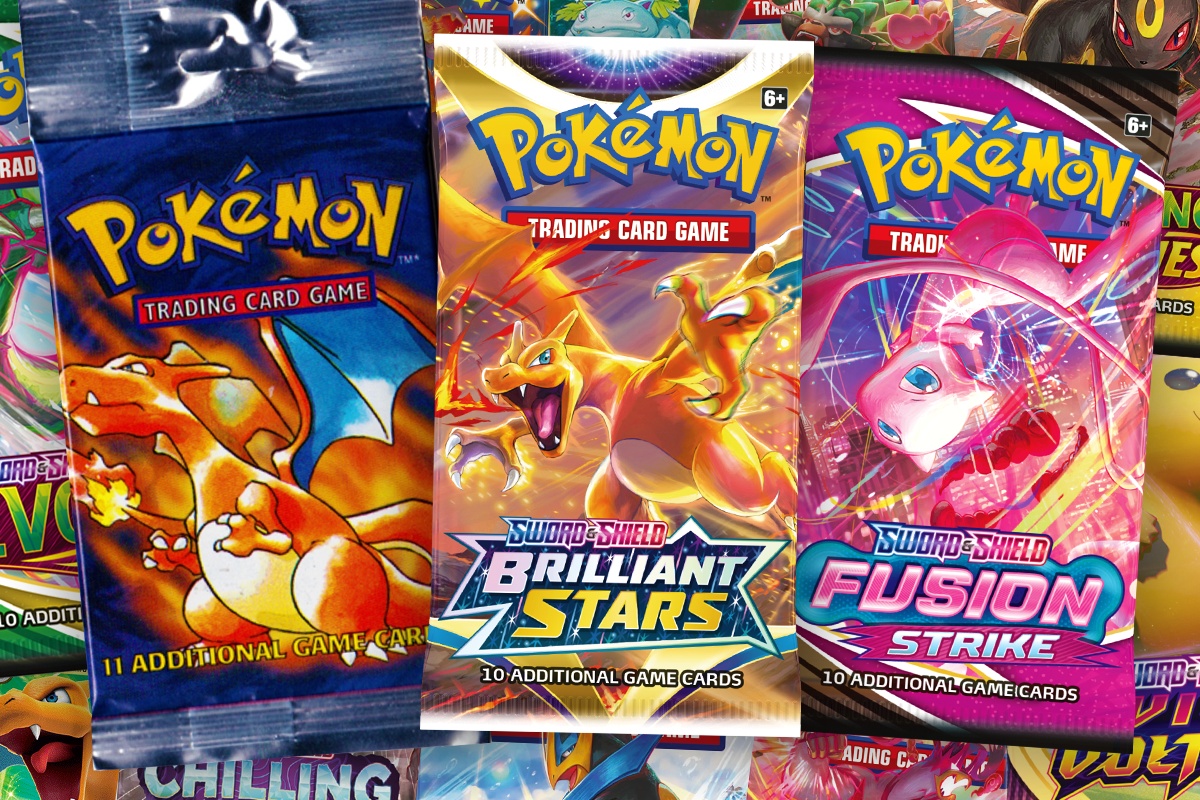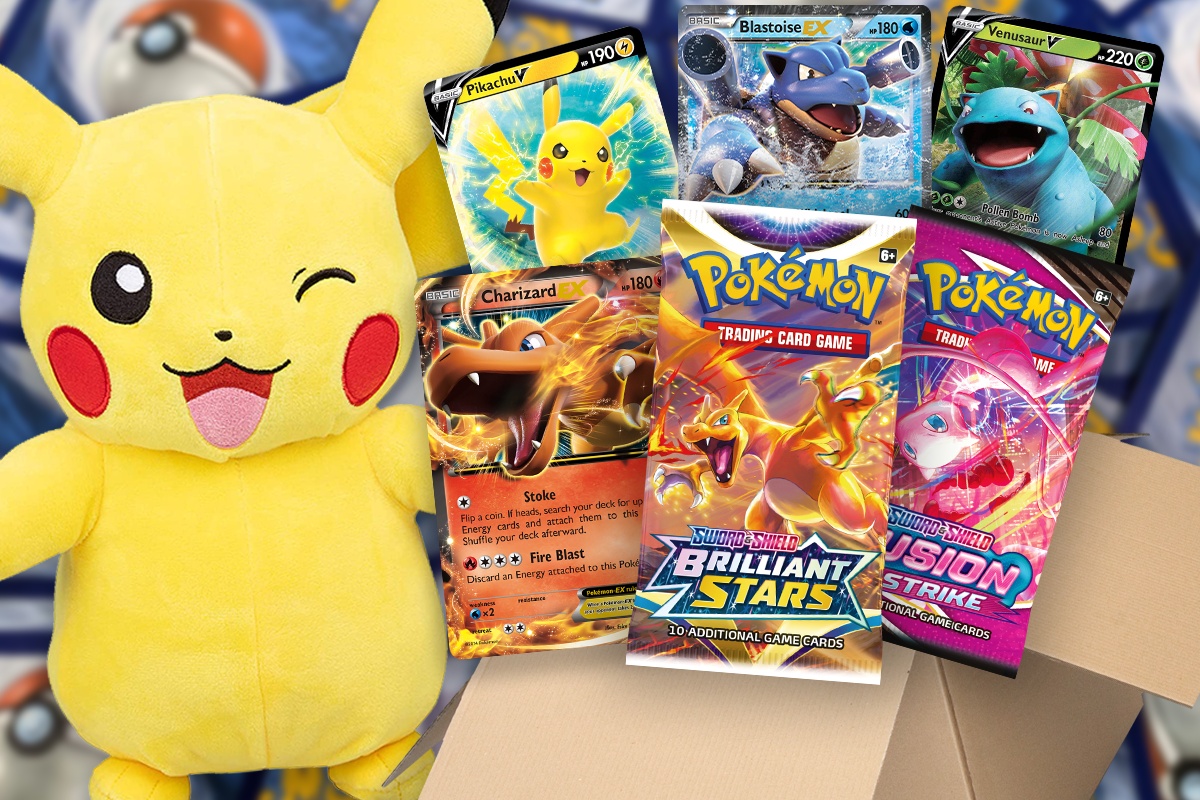How To Play Pokemon: Trading Card Game
Updated by Brittany Vincent
Pokemon: Trading Card Game (TCG) is the most popular game of its type in the world. For over two decades, fans have been collecting cards and duking it out . One of the biggest reasons for its popularity—besides the Pokemon themselves, of course—is how accessible it is for new players. With the tips below, you'll be well on your way to becoming a Pokemon master.
How Many Cards Do You Need in Pokemon: TCG?
A Pokemon deck consists of 60 cards. Within this deck, you must assemble a functional blend of Pokemon, Energy, and Trainer cards.

How Do I Build a Deck in Pokemon: TCG?
The only hard rule aside from the 60-card overall limit in Pokemon is that you can have no more than four cards with the same name—even if they're from two different expansion packs. For example, Staryu from the base set and Staryu from the XY expansion pack have different “hit points” and attacks, but they both count toward the four-card limit.
The best way to learn about deckbuilding and composition is to start with a prebuilt deck . That way, you can see how many cards of each type you need and how decks can be composed to form a playing strategy.
A great example of an early Pokemon: TCG deck is the Overgrowth version of the base set. It's composed of:
- Beedrill x1
- Bill x2
- Bulbasaur x4
- Grass Energy x16
- Gust of Wind x2
- Gyarados x1
- Ivysaur x2
- Kakuna x2
- Magikarp x2
- Potion x1
- Starmie x3
- Staryu x4
- Super Potion x2
- Switch x2
- Water Energy x12
- Weedle x4
In total, there are:
- 23 Pokemon cards
- 9 Trainer cards
- 28 Energy cards
While decks vary, this should give you a good idea of what ratio to shoot for when building your own deck.
How To Start a Round of Pokemon: TCG
A game of Pokemon: TCG starts with a coin toss to see who goes first.
Once that's decided, each player shuffles their decks and draws the top seven cards. The players then check their hands to see if they have any basic Pokemon. If so, they place them face down in the active Pokemon position. They may then put any additional basic Pokemon they have on the bench.
If a player draws a hand without any basic Pokemon, they must reveal their hand to their opponent, shuffle their deck, and draw seven more. Each time a player has to shuffle their deck due to lack of a basic Pokemon, their opponent gets to draw one card.
Once all Pokemon are placed into the playfield, both players must take the first six cards from their deck and place them as prize cards. You'll get to draw one of these each time you defeat an opponent's Pokemon.

How To Take a Turn in Pokemon: TCG
The first thing players do in every turn of Pokemon: TCG is draw a card. After that, you have some options.
During your turn, you may do any of the following applicable actions after drawing your card:
- Place any amount of basic Pokemon from your hand onto the bench;
- Evolve any amount of Pokemon;
- Attach one Energy card to a Pokemon of your choice;
- Play as many Trainer cards as you want (except for Supporter and Stadium cards, which are limited to one per turn);
- Retreat an active Pokemon once per turn;
- Use as many abilities as you want.
After completing this part of your turn, you'll enter the combat phase. At this point, you may attack your opponent's active Pokemon. To do so:
- Check how much energy you have attached to your active Pokemon;
- Check your opponent's active Pokemon for weakness and resistance;
- Choose an attack and calculate the damage done to your opponent's Pokemon;
- Place damage counters on your opponent's Pokemon (or let them do it).
If any Pokemon have status effects, now is the time to handle those mechanics.
After that, your turn is finished.
How do I Win Pokemon: Trading Card Game?
There are three ways to win in Pokemon:
Claim All Prize Cards
If you claim all six of your prize cards (by knocking out six Pokemon) then the game is over and you've won.
Your Opponent Runs Out of Pokemon
If the person you're facing no longer has any Pokemon they can play, you automatically win.
Your Opponent Runs Out of Cards to Draw
If your opponent has drawn all their cards, it's an automatic victory for you.
















